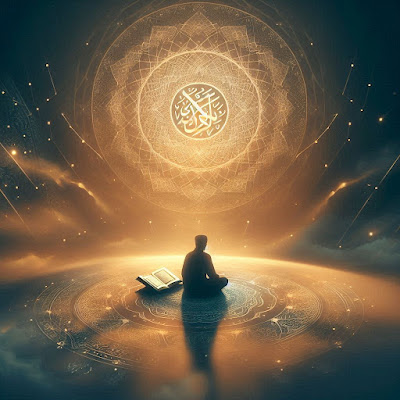The Dopamine Trap: When Spirituality Becomes a Transaction
How Misunderstanding Thawāb and Hidayah Fuels a Modern Crisis of the Soul
The consequential perception of Islam—reflected in the cleric’s statement that “the Quran is for guidance, not for thawāb”—reveals a deeper, problematic mindset: one that views religion through a lens of action and outcome, cause and effect. In this view, spirituality becomes a series of steps: perform a deed, expect a reward.
This mindset turns spiritual practice into a dopamine-driven system. Much like the way social media rewards likes and notifications, people begin to seek immediate gratification or tangible benefits from their acts of worship. Recite a verse? Get thawāb. Complete a fast? Earn points. Give charity? Secure a divine return. While the acts themselves are blessed, this approach frames religion as transactional rather than transformational.
And herein lies the disease of our time: dopamine addiction. It thrives on reward-based systems and external validation. While dopamine is a naturally occurring neurotransmitter meant to help us seek pleasure and motivation, it becomes spiritually dangerous when it replaces the pursuit of deeper meaning with the pursuit of reward.
This addiction to consequence distorts the purpose of religion. Instead of seeking nearness to Allah, cultivating inner stillness, or aligning with divine will, people chase after outcomes. They become more concerned with the what than the why—the reward rather than the relationship. And ironically, this leads not to satisfaction, but to a deep, subtle spiritual dissatisfaction and disconnection.
When Islam is reduced to a reward system, it loses its heart. It becomes performance-based rather than presence-based. What’s lost is the core experience of hidayah—divinely inspired guidance that arises from deep inner alignment with Allah. True hidayah doesn’t demand action—it inspires it. It moves the soul from within, allowing one to act with intention, sincerity, and spiritual maturity.
This is the essence of internal transformation. It’s not about chasing thawāb as an external reward but recognizing thawāb as a sign of alignment with Allah—a signal that the soul is moving in the right direction. For some, thawāb is seen merely as accumulation of merit. For others, it is the awakening of the heart, the calming of the soul, the stillness that precedes right action. It is tawfīq, divine enablement, gifted through turning sincerely to Allah.
The difference between these two paths is stark:
-
The dopamine path: action → reward
-
The spiritual path: connection → inspiration → aligned action
Those who operate from the dopamine model often accuse others of seeking thawāb, not realizing that they themselves have projected their own material understanding of reward onto others. This is self-projection at play: assuming others seek thawāb for the same shallow reasons they do.
But those who recite the Qur'an seeking thawāb as hidayah—spiritual realignment, clarity, and transformation—are not pursuing reward, but presence. Their intention is not to “get something” but to “become something.” To become more attuned to the Divine.
This is the path that heals the heart. This is the true meaning of thawāb. And this is the deeper meaning of Islam: not action for gain, but submission for transformation.



Comments